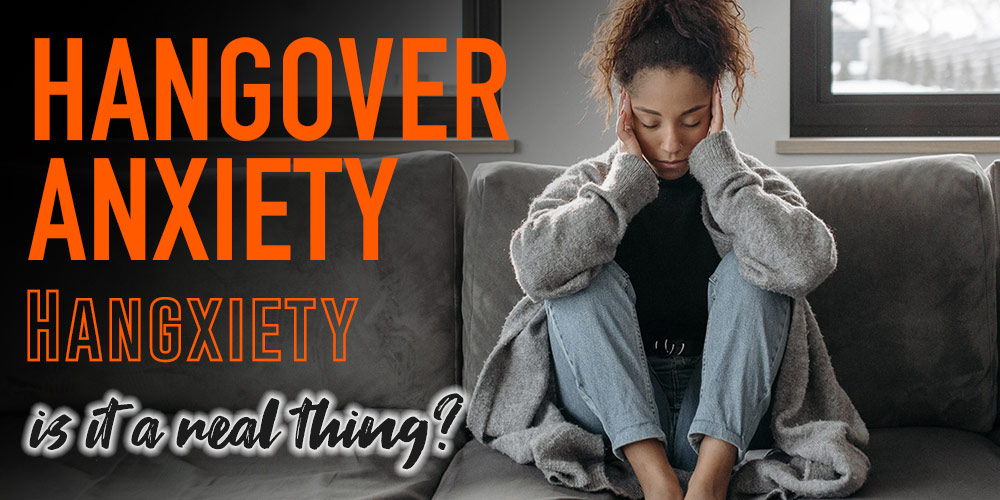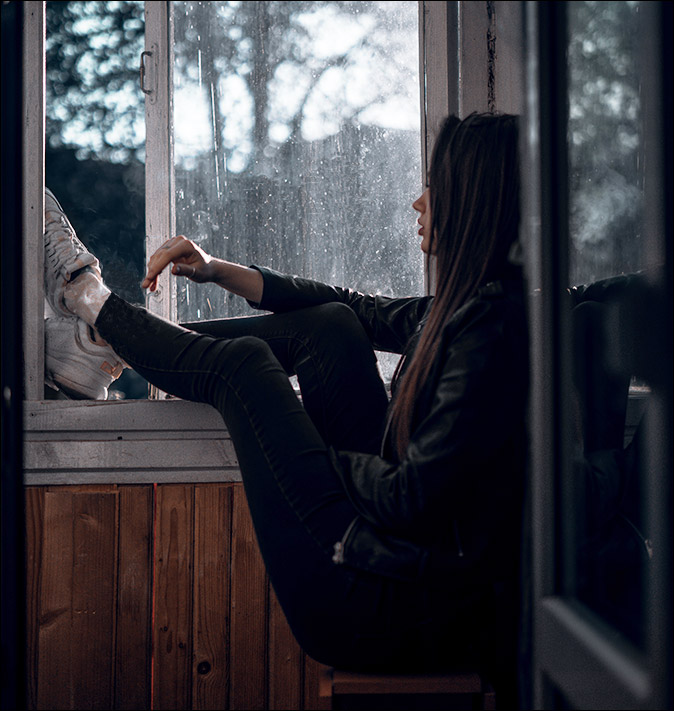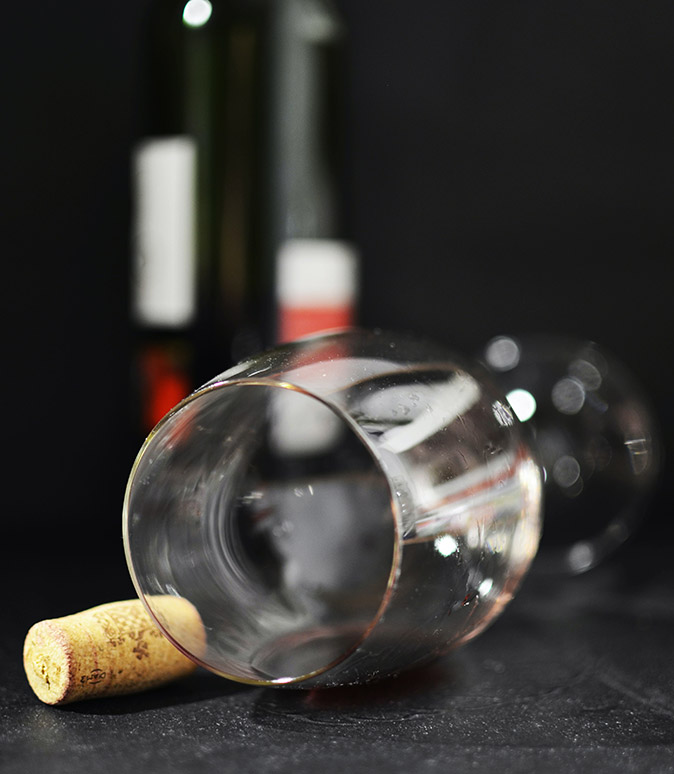
Have you ever experienced a bout of hangover anxiety after a night of drinking alcohol? If so, you know that Hangxiety is a very real thing.
Drinking alcohol, especially to excess, affects everyone differently. Some wake up the next day and feel just fine. Others barely make it out of bed, and the brave ones find ways to just plow through until it’s over.
Most people of a certain age who drink alcohol are familiar with physical hangover symptoms that usually range between feeling slightly sluggish to downright ill.
Another well known, but often-overlooked psychological symptom is hangover anxiety, not so fondly referred to as Hangxiety.
What is Hangxiety (Hangover Anxiety)?
Setting aside the role that the physical symptoms of a hangover play in our overall mood and wellbeing for just a moment, many people experience hangover anxiety the day after drinking if they feel like they did or said something inappropriate.
Even worse, the anxiety from a hangover may be simply because they can’t remember what they did at all.
Some Typical Hangxiety Symptoms Can Include:
- Nervousness, regret or fear about real or perceived behavior during a previous day or night of drinking
- Lethargy, difficulty concentrating, or problems completing normal day-to-day tasks at work or school
- Rapid heart rate
- Mood swings from frustration or anger to sadness and depression caused by anxiety
- Alcohol-related memory impairment that leads to worrisome thought patterns about any unknown actions or behaviors

These feelings of regret or anxiety have a tendency to lead to troublesome thoughts like the constant replay of the previous night’s events, or cringing about an uncomfortable memory. Even more troubling is the worry about when the events get a little hazy or drop off entirely due to a blackout.
It should be noted that people who deal with social anxiety issues on a daily basis, or even those experiencing a period of stress-induced anxiety, may be more susceptible to hangxiety.
The symptoms of their daily anxiety may dissipate with a few drinks, making them feel lighter, less shy, or nervous. But as the alcohol wears off, the flood of normal anxiety combined with alcohol-induced anxiety can make matters worse.
While regret, memory-impairment, and preexisting anxiety issues can lead to hangxiety, physiological symptoms can also cause these problems.
Common Causes of Hangxiety
Our physical health is directly connected to our psychological wellbeing. It’s incredibly common for people suffering from mild to severe mental health issues to experience depression or anxiety.
Drinking alcohol can lead to a hangover similar to withdrawal that comes with a lot of its own physical and emotional consequences and these symptoms can play an outsized part of alcohol-related anxiety.
Some of the More Common Hangxiety Causes Include:
Neurotransmitter Overload
Neurotransmitter overload may sound like something out of a sci-fi movie, but it is a major cause for hangover anxiety and hangxiety.
When we consume alcohol, the brain releases neurotransmitters like dopamine, serotonin, endorphins, and GABA that decrease our inhibitions, increase feelings of wellbeing, and intensify pleasurable experiences. These are feel-good chemicals in the brain that affect our mood and occur naturally, but are amplified when we drink alcohol or take drugs.
However, the flood of neurotransmitters from drinking is depleted as alcohol leaves the body and creates a deficit of these chemicals in the brain. So, the other side of the coin may be feelings of insecurity, regret, and worry.
Related: How to Increase GABA Naturally
Poor Sleep
Poor sleep can lead to hangxiety because fatigue effects the way our brains function, making it more difficult to navigate even simple interactions with others or complicating normal tasks.
Even if a person slept more than normal after a night of drinking, chances are that the sleep wasn’t as restorative and restful as it needs to be.
This can be related to waking up several times during the night to use the bathroom as well as the body expending energy to process the alcohol.
It is a common myth that we sleep better after drinking alcohol, when it in fact, we have much poorer “quality” of sleep, which translates to feeling groggy or tired the next day when we wake up.

Dehydration
Alcohol is a diuretic that causes the body to flush out fluids from the system more quickly than usual, and it’s the biggest reason why we pee a lot when we have a few cocktails.
Because we lose fluids more quickly from alcohol, dehydration is a common hangover symptomthat leads to nasty headaches, body aches, inflammation in the body, and a serious lack of energy.
What’s more, studies show that dehydration can have a direct impact on high and low moods.
Medications
Medications can also be an issue that increases anxiety after drinking. If you’re taking any medications, such as antidepressants, make sure it’s okay to consume alcohol while on them.
Some medications can interact with alcohol in various ways, like causing memory loss, which will worsen the symptoms of hangxiety.
People taking medications for anxiety may find them to be temporarily ineffective after drinking because of a negative interaction with alcohol.
Understanding some of causes and symptoms of hangxiety is helpful as a way to manage or prevent having to deal the condition.
How to Get Rid of Hangxiety
While there isn’t really a simple hangover anxiety cure, getting rid of hangxiety might take a day or two for the symptoms to subside.
Not all drinking will be problematic, and the most obvious way to avoid alcohol-induced anxiety is to abstain from drinking. This is particularly important for people who already have pre-existing anxiety issues.
Short of staying sober, it’s smart to drink only after eating a meal and limiting the number of drinks you have during a night out.
Most experts suggest no more than one drink per hour, with two drinks or less for women and three for men. It also helps to consume an equal amount of water between drinks to limit the chance of dehydration.
Other Tips to Get Rid of Hangxiety Symptoms Can Include:
- Rest and sleep if possible
- Do not self-medicate hangover symptoms with more alcohol
- Drink plenty of water to rehydrate
- If needed, take over-the-counter pain medications like ibuprofen for head or body aches, but never Tylenol or acetaminophen because of an interaction with the liver while alcohol is still in the system
- Eat light, healthy meals and avoid heavy, greasy foods
For some people, experiencing hangxiety is enough to make them monitor their alcohol intake or even stop drinking altogether. For others, giving up alcohol may be harder than they think.
Alcohol use disorders can range from what is referred to as high functioning alcoholism to severe alcohol abuse that overtakes a person’s life.
Whatever the case may be, alcohol addiction treatment can help a person recover from dependence issues and learn to deal with anxiety in a much more straightforward and healthy manner.
Related Posts
- Alcohol Poisoning and Hangover Symptoms
Most adults who drink alcohol, either regularly or on special occasions, are likely to have…
- Signs Of Addiction To Watch For
Addiction is a serious disease and it is imperative for it to be regarded as…
- 46 Movies About Drugs, Addiction and Alcoholism
Movies about drugs, addiction and alcoholism can be hard-hitting and even triggering for some people.…
